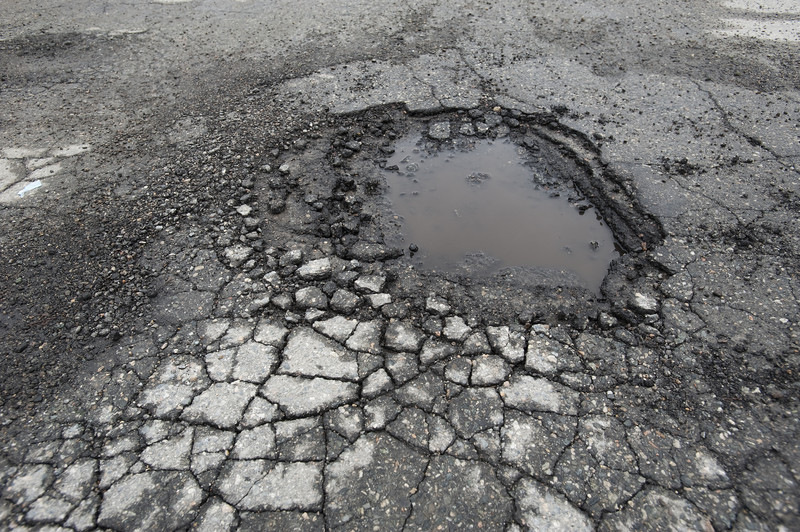
It’s orange barrel season in Michigan, as road crews swing into action on thoroughfares across the state. Most of us would agree with Governor Whitmer that the state needs to “fix the damn roads.” But is the Michigan Department of Transportation (MDOT) making the best use of our limited tax dollars?
A significant portion of our state’s transportation funding is going towards widening roads, not just repairing existing road capacity. Just in the metro Detroit area, there are half a dozen major highway widenings – also known as “capacity projects” – either underway, planned, or recently completed. These include the addition of lanes to I-75, I-96, and I-94, among others.
TRU’s latest report is titled “For Michigan Roads, MDOT Needs to ‘Fix It First.'” We argue that instead of adding new highway capacity, MDOT should be focused on fixing what we already have. For one thing, we shouldn’t be building new infrastructure we can’t afford to maintain. For another, highway widening contributes to urban sprawl and air pollution. To top it off, highway widening doesn’t ultimately cure congestion. Over the long term, it causes “induced demand,” leaving us right back where we started.
There’s precedent for “Fix it First” policy in Michigan: in 2003, Governor Granholm hit “pause” on four major highway capacity projects, including the extension of I-375 to the Detroit riverfront. Our report also offers examples of relevant policies from other states.
Minnesota, Colorado and California, for instance, have all set goals of reducing “vehicle miles travelled” (VMT), the total amount people drive. They require transportation projects like capacity expansions to be mitigated by other projects that reduce total VMT.
Virginia offers another example of smarter transportation policy. Its “SMARTSCALE” process determines what transportation projects get funded via a set of objective criteria, including land use and air quality effects in addition to traditional metrics like congestion reduction.
When we’re spending billions of dollars on roads every year, we ought to be spending that money wisely, in a way that contributes to a more prosperous and sustainable state. We look forward to sharing this report widely as the Michigan Legislature debates a road funding deal. Check out the full report below!
